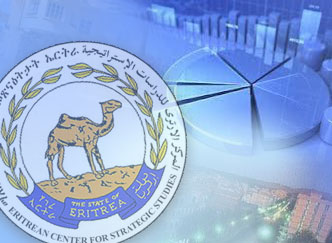March 5, 2016
Address Of H.E. Osman Saleh, Minister of Foreign Affairs of the State of Eritrea
At the Thirty-first Session of the Human Rights Council
Geneva, 1 March 2016
 Distinguished President of the Human Rights Council,
Distinguished President of the Human Rights Council,
Excellencies,
Allow me first to congratulate you, Mr. President, on your election and to express our hope that the Human Rights Council will make valuable contributions to peace, development and human rights under your able leadership.
For Eritrea, a nation born in the struggle for freedom and for whom human dignity remains the top priority, it is gratifying to see that the respect, protection and consolidation of human rights are featuring more and more prominently on the international agenda. Eritrea cannot agree more that peace, security, development and human rights constitute the essential pillars for the sustenance of human life and dignity. At the same time, it cannot fail to note that these vital pillars remain shaky and are threatened more and more by continuing and escalating violations of international law, the rights of nations and the fundamental freedoms of citizens.
History and the experience of all countries reveal that the consolidation of human rights is a work in progress for all time and for all nations, requiring not only the commitment and efforts of governments but the steadfast vigilance and struggle of millions of people. This entails that each nation honestly examines its human rights record, past and present, and focus, first and foremost, on improving its own performance. The would-be physician has to heal himself/herself first and lead by example instead of relying on arms and wealth to accuse and bully others. If we allow one set of rules for the poor and weak and another set for the rich and powerful, if we close our eyes to the gross violations of those who are favoured by the rich and powerful and unfairly target those who seek to chart an independent path, we discredit ourselves and our institutions and undermine human rights.
Mr. President,
The current wave of migration with the attendant dislocation, division, suffering, deaths, violation of human rights and dignity, racism and xenophobia that it has stirred poses a severe test to many nations and the world at large. There is much talk about addressing the root causes but little agreement on what those causes are and even less meaningful effort to tackle them. We need to begin by acknowledging that the current world situation of massive inequality and gross injustice, of wars and violation of international law is untenable and will only increase irregular migration. We need to accept that beyond the culpability of some governments in the home countries of migrants, structural inequality and international armed intervention undertaken over the past few years has created the tragic situation we see today. Eritrea firmly believes that every nation bears primary responsibility to meet the aspirations of its people. At the same time, human solidarity requires that these nations be supported in their efforts or at the very least that they are left alone and nothing done to exacerbate their problems. More importantly, we need to collectively work for a more equitable and just world order that would create decent livelihoods in all nations.
Mr. President,
Eritrea currently enjoys peace and security and is focused on development and the consolidation of the human dignity of its citizens. It firmly believes that it has primary responsibility for the safety and wellbeing of its people; a conviction rooted in its history and so strong that many have wrongly accused it of arrogance and trying to go it alone. In fact, Eritrea is open, open to its neighbours and the world. It welcomes genuine partnerships and is responsive to those who seek to engage it in good faith and for mutual good and benefit. Eritrea’s growing and deepening relations in the region and throughout the world attest to this.
Eritrea is committed to the Universal Periodic Review, where all nations should be treated equally. It has appeared twice in the process, accepted many recommendations and is actively working to implement them with the support of the United Nations, the Office of the High Commissioner for Human Rights and other partners. More importantly, and despite a negative external environment, Eritrea has made remarkable progress in consolidating the civil, political, economic and social rights of the Eritrean people. Many are now beginning to acknowledge this reality.
Mr. President,
Eritrea has been treated most unfairly by this Human Rights Council and for reasons that sadly have nothing to do with human rights. The most outrageous and patently false attacks have been made not so much against the government but a tolerant, humane and civilized people. Eritrean women, whose struggle for freedom has few equals in the world, and who play a prominent role in a society which has tremendous respect for their history and contribution, have been besmirched. Some other nations have met the same fate as Eritrea, while those who have the protection of this or that big power, have impunity despite their sordid human rights record and act as spoilt children in this Council. This selective approach of double-standards based on political expediency of the powerful makes a mockery of human rights and demeans this Council. In the interests of human rights and the integrity of our institutions, this shameful and harmful practice needs to come to an end.
I thank you.



